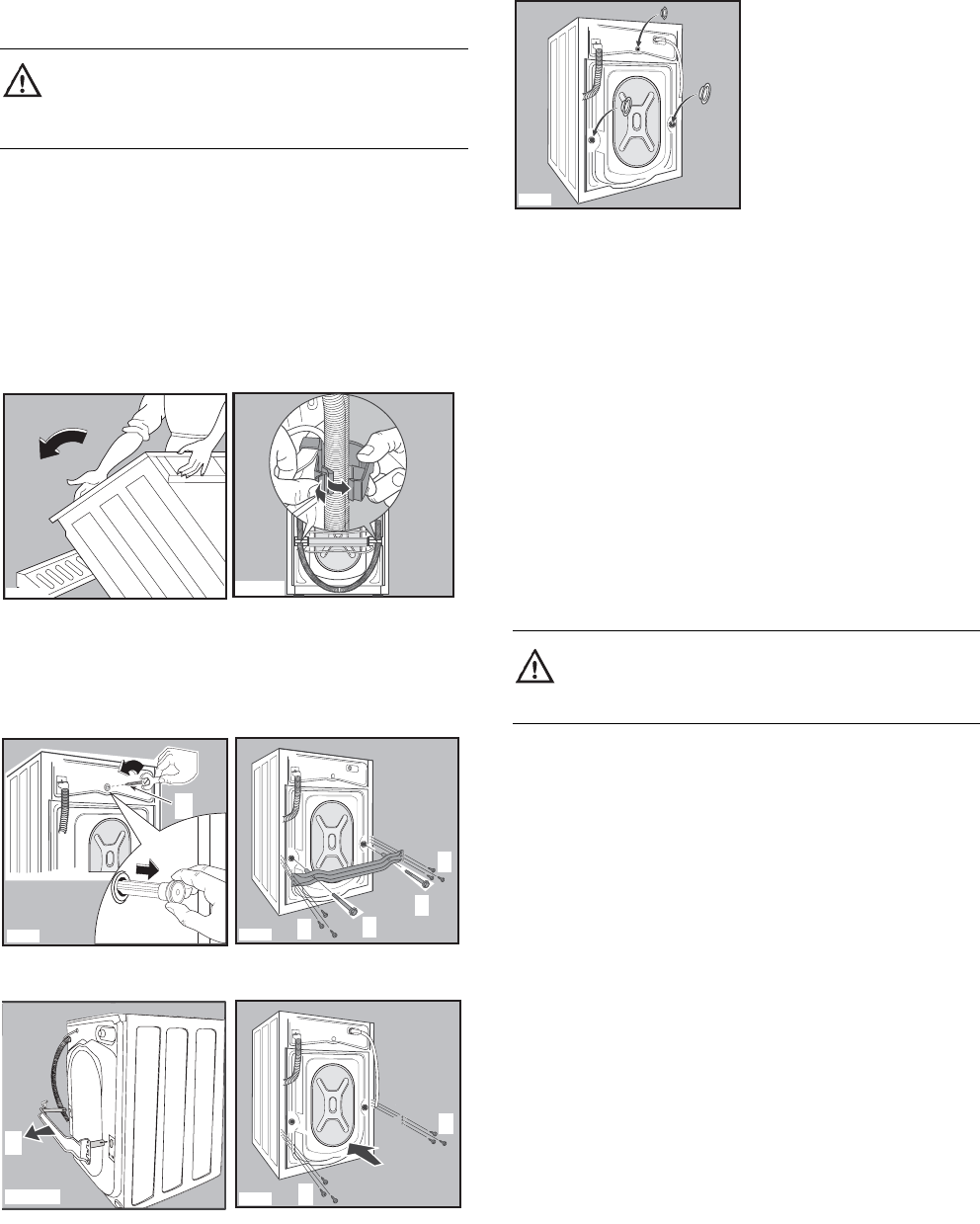
2121
Unpacking
All transit bolts and packing must be removed
before using the appliance.
Keep all packaging away from children.
You are advised to keep all the transit bolts for re-use
in case the machine is to be transported again.
After removing all the packaging, with assistance
carefully lay machine on it’s back to remove the
polystyrene base from the bottom.
Remove the power supply cable, the inlet and the
draining hoses from the hose holders on the rear of
the appliance.
With the spanner provided unscrew and remove the
central rear bolt A. Slide out the relevant plastic spacer.
Unscrew and remove the two large rear bolts B and
the six smaller bolts C.
Remove the bracket D, refit the six smaller bolts C.
Fill the smaller upper hole and the two large ones with
the corresponding plastic plug caps supplied in the bag
containing the instruction booklet.
C
C
BI0012
BI0011
D
BI0010
C
C
B
B
BI0009
A
HEC0001
HEC0008
Positioning
Install the machine on a flat hard floor.
Make sure that air circulation around the machine is
not impeded by carpets, rugs etc. Check that the
machine does not touch the wall or other kitchen
units.
Never place cardboard, wood or similar materials
under the machine to compensate for any unevenness
in the floor.
If the floor is carpeted or covered with crumbly or soft
material, insert a rigid support base under the feet to
prevent noise, vibration or displacement. The base
should protrude a few centimetres beyond the edges of
the machine.
Warning
The machine should NOT be placed on deep pile
carpeting.
Installation on a suspended floor
Suspended wooden floors are particularly susceptible
to vibration. To help prevent vibration we recommend
you place a waterproof wood panel, at least 15 mm
thick under the appliance, secured to at least 2 floor
boards with screws. If possible install the appliance in
one of the corners of the room, where the floor is
more stable.
Note
Please ensure that when the appliance is installed it is
easily accessible for the engineer in the event of a
breakdown.
Plumbing in
Your new washing machine has been designed to be
permanently plumbed in to your home’s water supply
and drainage system. However, if this is not possible, it
may be connected to a suitable existing tap with the
drain hose discharging into a sink.
BI0013


















